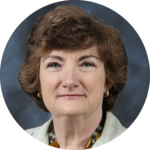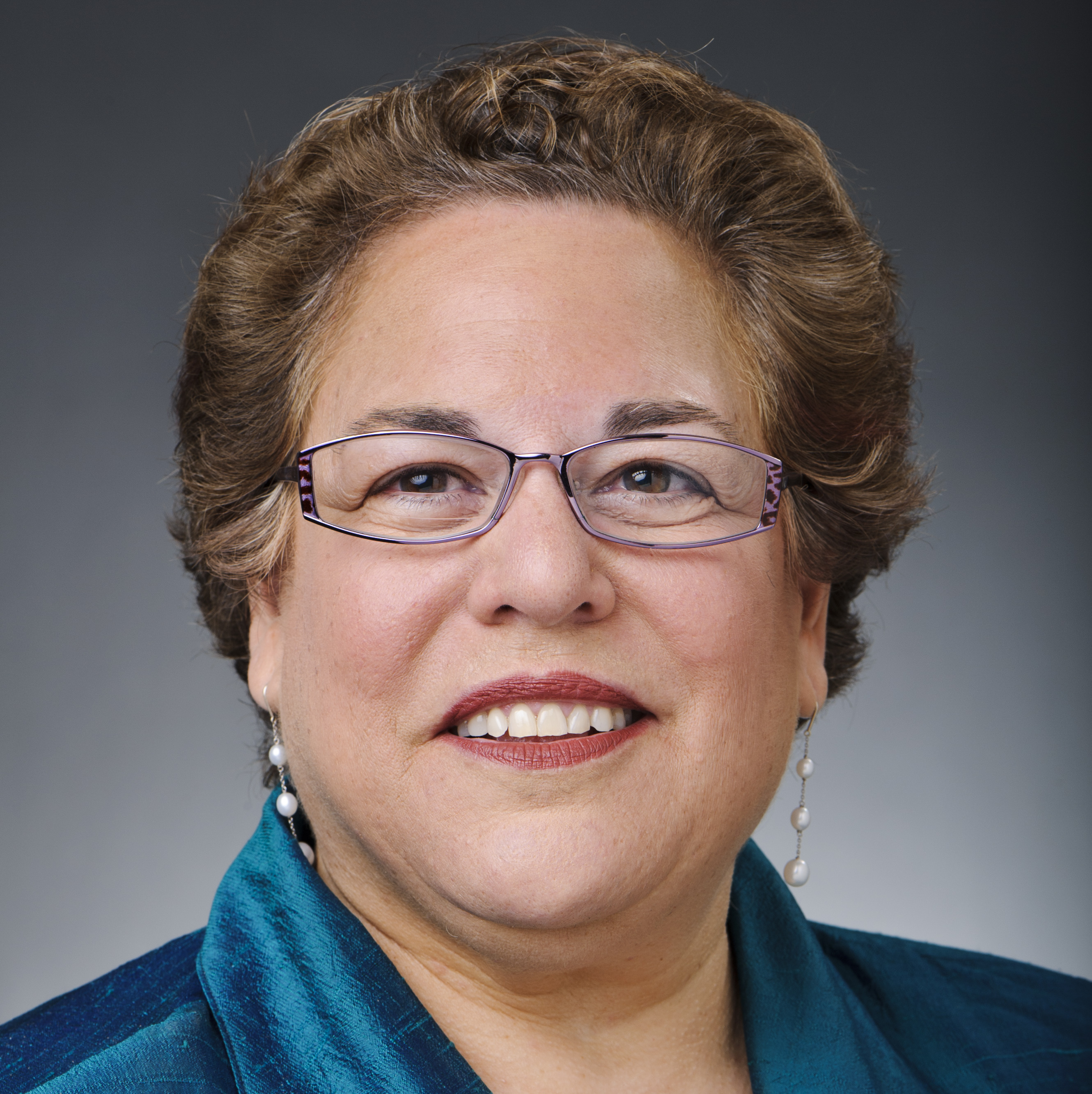
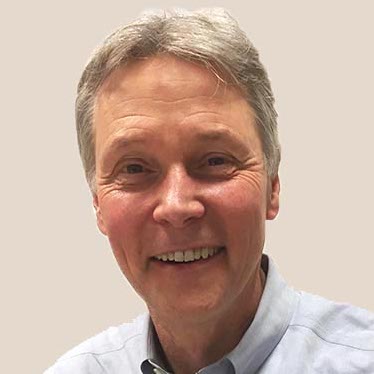

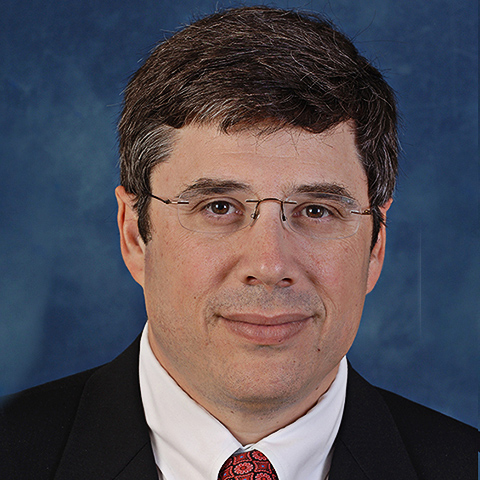



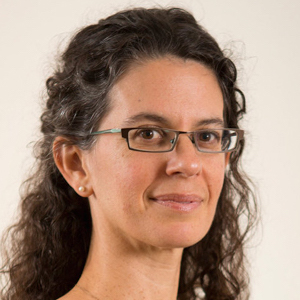
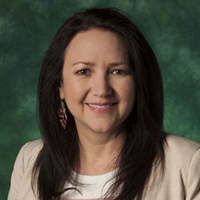
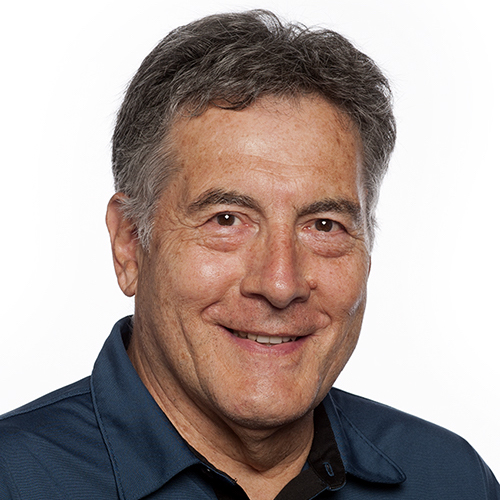
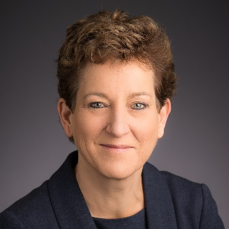

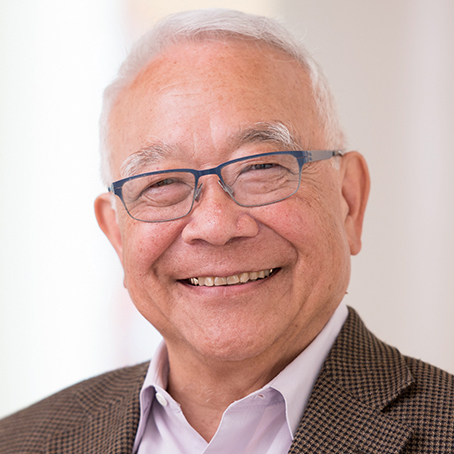
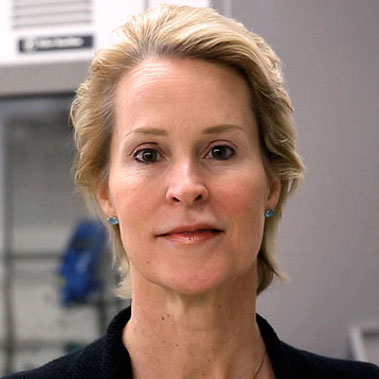
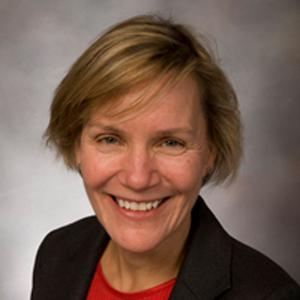
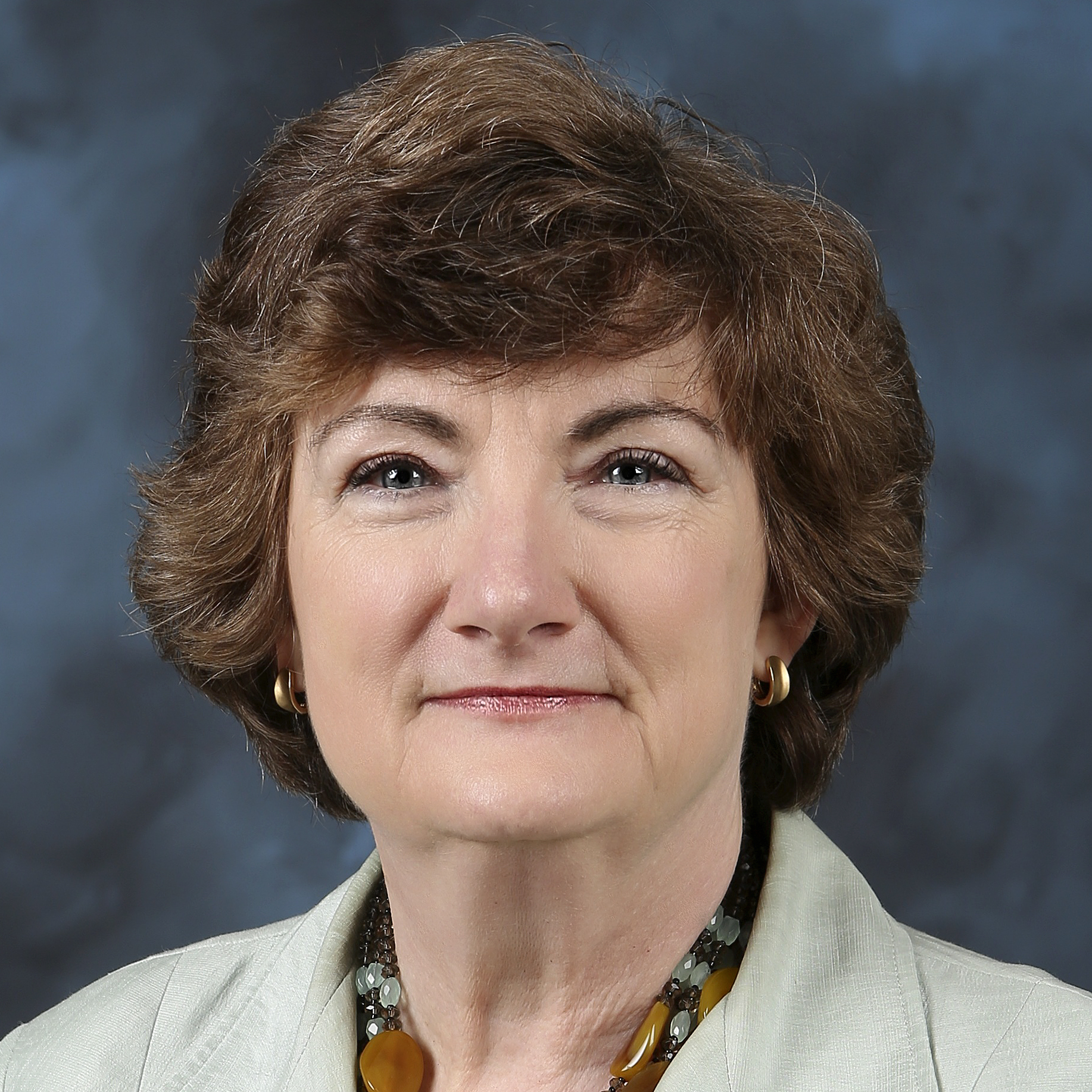
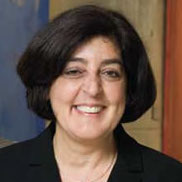


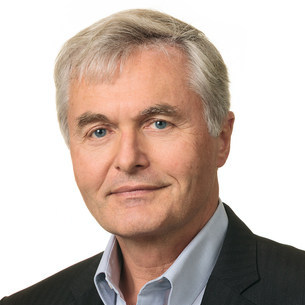
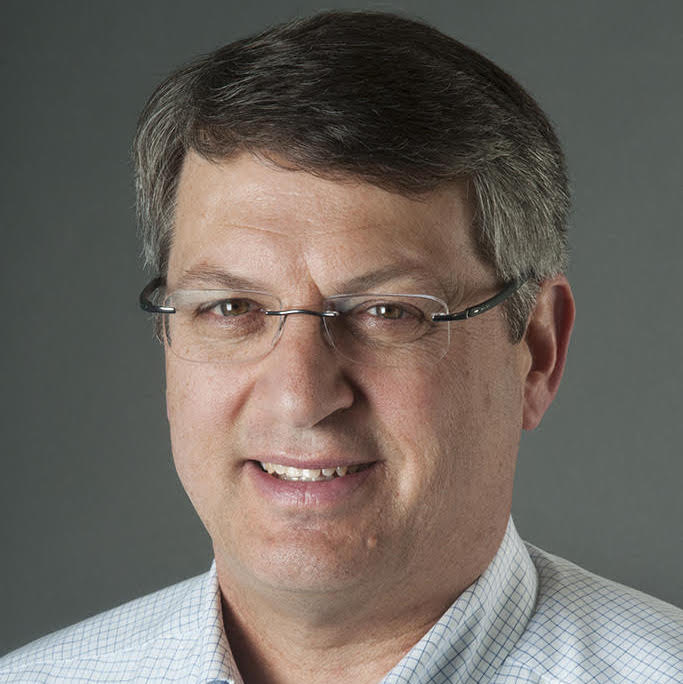

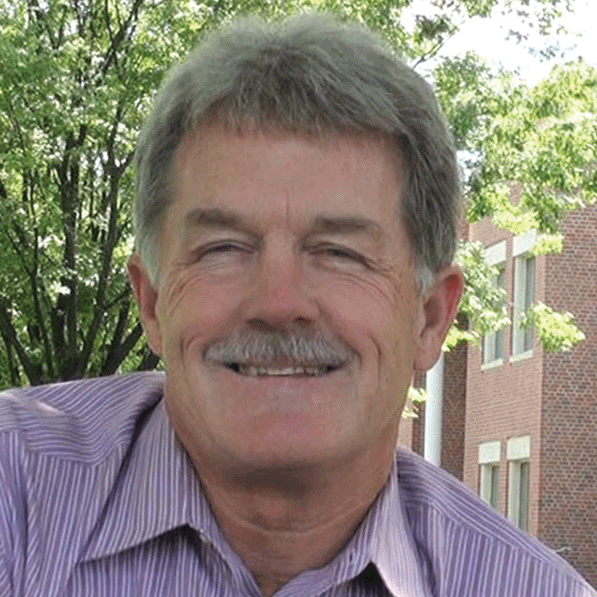
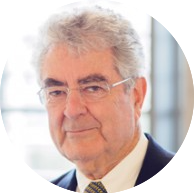
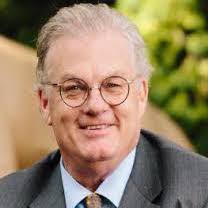
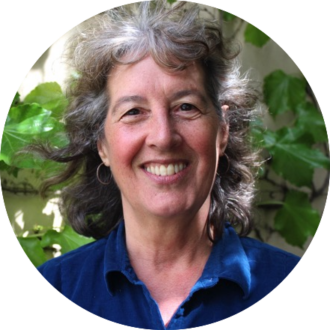
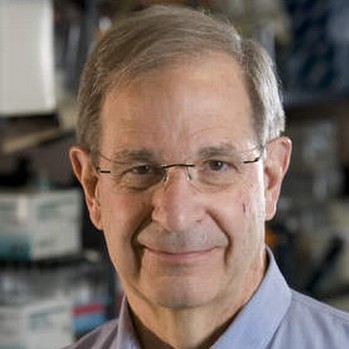

Profiles
 R. Alta Charo
R. Alta Charo
University of Wisconsin Law School
Charo is the Warren P. Knowles Professor of Law and Bioethics at the University of Wisconsin at Madison, where she is on the faculty of the Law School and the Department of Medical History and Bioethics at the medical school. She also has served on the faculty of the UW Masters in Biotechnology Studies program and lectures in the MPH program of the Department of Population Health Services
Charo (BA biology, Harvard 1979; JD, Columbia 1982) is an elected member (2004) of the World Technology Network and (2005) the Wisconsin Academy of Sciences, Arts and Letters. And in 2006 she was elected to membership in the National Academies’ Institute of Medicine (IOM) (now known as the National Academy of Medicine). In 2013 she was awarded the Adam Yarmolinsky Medal for her service to the IOM.
Charo offers courses on public health law, bioethics, biotechnology law, food & drug law, reproductive rights, stem cell policy, torts, and legislative drafting. In addition, she has served on the UW Hospital clinical ethics committee, the University’s Institutional Review Board for the protection of human subjects in medical research, and the University’s Bioethics Advisory Committee. She has been a visiting lecturer at law and medical schools in Argentina, Australia, Canada, China, Cuba, France, Germany, and New Zealand. In 2006, she was a visiting professor of law at the University of California, Berkeley, School of Law (Boalt Hall).
Charo has authored or contributed to over 100 articles, book chapters and government reports on law and policy related to environmental protection, reproductive health, new reproductive technologies, medical genetics, stem cell research, science funding, and research ethics.
Charo’s advisory committee service for the federal government includes the 1994 NIH Human Embryo Research Panel, and (1996-2001) President Clinton’s National Bioethics Advisory Commission where she participated in drafting its reports on “Cloning Human Beings”(1997); “Research Involving Persons with Mental Disorders that May Affect Decision-making Capacity”(1998); “Research Involving Human Biological Materials: Ethical Issues and Policy Guidance”(1999); “Ethical Issues in Human Stem Cell Research”(1999); “Ethical and Policy Issues in International Research: Clinical Trials in Developing Countries” (2001); and “Ethical and Policy Issues in Research Involving Human Participants” (2001).
At present she is the co-chair of the NAS/IOM committee charged with making recommendations on the use of gene editing for both somatic and germline (heritable) changes in humans, as well as an NAS/IOM Forum on Regenerative Medicine. She also serves on the Program Board of the Greenwall Foundation and was a witness for the congressional panel looking at the practice of fetal tissue research.
 Charles S. Craik
Charles S. Craik
UC San Francisco
Craik is a professor in the Department of Pharmaceutical Chemistry at the University of California at San Francisco and is Associate Director of Translational Research and Co-Director of the Molecular Oncology Program in the Helen Diller Family Comprehensive Cancer Center. His research interests have focused on defining the roles and the mechanisms of enzymes, protein degradation machinery, receptors, membrane transporters and other challenging proteins in complex biological processes and on developing technologies to facilitate these studies. Craik is known for his work on structure-function relationships in proteases that include structure guided approaches to drug design. The work coupled with his global substrate profiling technology, protein engineering and noninvasive imaging efforts are providing a better understanding of both the chemical make-up and the biological importance of key disease associated proteins to aid in the rapid detection, monitoring and control of infectious disease, neurological disorders and cancer. Craik is a council member of the American Association of Biochemistry and Molecular Biology (ASBMB), a Fellow of the American Association for the Advancement of Science (AAAS), the National Academy of Inventors (NAI) and the American Academy of Arts and Sciences.
 Heiner Dreismann
Heiner Dreismann
Roche
Dreismann is the former President and CEO of Roche Molecular Systems and an active member of the biotechnology industry. Dreismann earned a master’s degree in biology and a PhD in microbiology/molecular biology, both from Westfaelische Wilhelms University in Muenster, Germany. He did his post-doctoral stay at the French Atomic Research Center in Saclay (1982), joined Roehm GmbH in Darmstadt in 1983 as a microbiological geneticist, and then joined Hoffmann la Roche in 1985. He has held various positions including head of diagnostics manufacturing in Grenzach-Wyhlen, head of diagnostics R&D for infectious diseases in Kaiseraugst, head of business unit Microbiology, head business unit PCR Europe, head strategic portfolio planning for Roche Molecular Systems, member of Roche’s global Executive Committee for Diagnostics, head of global Business Development for Roche Diagnostics and President and CEO of Roche Molecular Systems (RMS) in Pleasanton, California.
His notable accomplishments include renewal and re-structuring of Roche Molecular Systems’ global product portfolio. During his tenure as president and CEO, RMS developed several PCR-based diagnostic tests, e.g. HIV qualitative and quantitative assays, Hepatitis C assays, septicemia and P 450 tests, and several more. Roche Molecular Systems also developed a diagnostic system, TaqScreen, for use in blood banks worldwide in response to the threat of infections of blood donations with viruses. The test entered FDA clinical trials and could detect HIV, HCV, and HBV in blood donations possibly ensuring the safety of North American blood banks supplies in the future. By his departure in 2006, Roche Molecular Systems had doubled in size. The Molecular Diagnostics business unit grew from $640 million to $1.2 billion.
Dreismann serves on the boards of a number of high-technology companies, including Singulex, Myriad Genetics, Ignyta, Dynex, Stratos Genomics, and others.
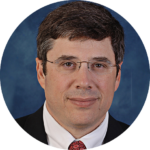 Geoffrey Duyk
Geoffrey Duyk
Circularis Partners
Duyk is a Partner of Circularis Partners, an investment firm focused on supporting technology-enabled companies that advance the circular economy, promote sustainability, and enhance resource efficiency. Circularis is a sub-advisor to the TPG Alternative & Renewable Technologies (ART) fund. Prior to Circularis, he was the Managing Director and Partner of TPG Alternative & Renewable Technologies (ART)/TPG Biotechnology from 2004 to 2017.
Before joining TPG, Duyk served on the Board of Directors and was President of R&D at Exelixis. Previously, he was one of the founding scientific staff at Millennium Pharmaceuticals and served as Vice President of Genomics. Prior to his tenure at Millennium, Duyk was an Assistant Professor at Harvard Medical School (HMS) in the Department of Genetics, and an Assistant Investigator of the Howard Hughes Medical Institute (HHMI). While at HMS, Duyk was a Co-Principal Investigator in the National Institutes of Health (NIH)-funded Cooperative Human Linkage Center.
He holds a PhD and MD from Case Western Reserve University, and completed his medical and fellowship training at the University of California, San Francisco (UCSF). While at UCSF, he was a fellow of the Lucille P. Markey Foundation and was also awarded a post-doctoral fellowship from HHMI. He is a Fellow of the American Association for the Advancement of Science.
Duyk currently serves on the Board of Directors of Amyris (Nasdaq: AMRS), Anuvia Plant Nutrients, Concentric, and Regen. In addition, he is a trustee of Case Western Reserve University where he Chairs the finance committee and is a member of the executive committee. He is also a member of the Institute Board of Directors of the Moffitt Cancer Center where he Chairs the R&D committee. Previously, he served as a member of the Scientific Advisory Board (SAB) for Bayer CropSciences, Jackson Labs, as well as numerous NIH advisory committees.
 Elizabeth Dumont
Elizabeth Dumont
UC Merced
Elizabeth (Betsy) Dumont joined UC Merced as Dean of the School of Natural Sciences in August 2017 and is a professor in the Life and Environmental Sciences department. Previously, she served as Vice Provost for Academic Affairs and professor of biology at the University of Massachusetts, Amherst. Dumont and her lab members study links between anatomy, behavior, ecology, and biomechanics in the diversification of vertebrates. Most of her work focuses on neotropical leaf-nosed bats, but she has also published studies of birds, fishes, carnivorans, primates, moles, and marsupials. Dumont received her bachelor’s degree with honors in anthropology from the Indiana University, Bloomington, and her PhD in physical anthropology from Stony Brook University in New York.
 J. Patrick Fitch
J. Patrick Fitch
Los Alamos National Laboratory
Fitch is Associate Director of Los Alamos National Laboratory (LANL) for Chemical, Earth, and Life Sciences. During the pandemic he has also led LANL’s Special Office for COVID-19 R&D and the COVID-19 Testing Team for the Department of Energy’s National Virtual Biotechnology Laboratory. Prior to LANL, Fitch stood up and then directed for over a decade one of the nation’s largest maximum biocontainment laboratories (BSL-2, 3, and 4). This Laboratory houses the National Biological Threat Characterization Center and the National Bioforensic Analysis Center that perform thousands of analyses each year. His biodefense, pathogen, and toxin R&D interests were preceded with work at Lawrence Livermore National Laboratory (LLNL) on the human genome, medical device design, digital imaging, and computer architectures and algorithms.
Fitch received a Ph.D. in Engineering from Purdue University and BS degrees in Physics and Engineering Science from Loyola in Baltimore. Fitch is a Fellow of the AAAS, recipient of three Secretary of Energy Achievement Awards, two FLC Excellence in Technology Transfer Awards, an IEEE international best paper award, an ABSA national best poster award, and an LLNL S&T Award. Fitch has chaired and participated in several activities of the NASEM—most recently the 2022 expert meeting for the assessment of methods and tools for identification of pandemic origins.
 Daniel A. Jacobson
Daniel A. Jacobson
Oak Ridge National Laboratory
Jacobson’s lab focuses on the development and subsequent application of mathematical, statistical and computational methods to biological datasets in order to yield new insights into complex biological systems. Their approaches include the use of network theory and topology discovery/clustering, wavelet theory, machine and deep learning (amongst others: iterative random forests, deep neural networks, etc.) in a supercomputing context.
Areas of statistics of particular interest to his lab include the use of both frequentist (parametric and non-parametric) and Bayesian methods as well as the development of new methods for genome-wide association studies (GWAS), genome-wide epistasis studies (GWES) and phenome-wide associations/epistasis studies (PheWA/ES). These mathematical and statistical methods are applied to various population and (meta)multiomics data sets (genomics, phylogenomics, transcriptomics, proteomics, metabolomics, microbiomics, viriomics, phytobiomics, chemiomics, etc.) individually as well as in combination in an attempt to better understand the functional relationships as well as biosynthesis, signaling, transcriptional, translational, degradation, and kinetic regulatory networks at play in biological organisms and communities as well as how they adapt to and interact with their environment.
Many of the projects in his lab center around studying complex systems for bioenergy and phytobiomes. However, his lab takes a broad view of biological complexity and evolution that stretches from viruses to microbes to plants to humans (including neurological disorders and substance abuse). Jacobson’s group was the first group to break the exascale barrier. At present, this (2.36 Exaops) calculation is the fastest scientific calculation ever done anywhere in the world. This project led to his team winning the 2018 Gordon Bell Prize (the first ever for systems biology).
 Mary Ann Moran
Mary Ann Moran
University of Georgia
Moran is a Regents’ Professor and Foundation Distinguished Professor in the Department of Marine Sciences at the University of Georgia. She earned degrees at Colgate University (BA, biology, 1977), Cornell University (MS, natural resources, 1982), and the University of Georgia (PhD, ecology, 1987). She is a member of the National Academy of Sciences, and a fellow of the American Association for the Advancement of Science and the American Academy of Microbiology.
Moran’s research program focuses on the genetic and ecological underpinnings of bacterial sulfur and carbon cycling in the ocean, with the goal of understanding the role of marine bacteria in the productivity of the ocean and the formation and flux of climatically active gases. Her research uses molecular microbial ecology and ecological genomics approaches to explore bacterial processes and their regulation.
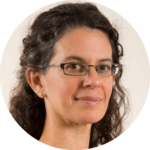 Dianne K. Newman
Dianne K. Newman
California Institute of Technology
Newman serves as the Gordon M. Binder/Amgen Professor of Biology and Geobiology at the California Institute of Technology (Caltech), which she joined in 2000. She was appointed a Howard Hughes Medical Institute Investigator in 2005-2016, and served as the John and Dorothy Wilson Professor of Biology and Geobiology at MIT from 2007-2010.
Her research focuses on microbial stress responses, with an emphasis on mechanisms of energy generation and survival when oxygen is scarce. The contexts that motivate her work span ancient sedimentary deposits to chronic infections yet are linked by similar physiological questions. Newman has been honored as a David and Lucille Packard Fellow in Science and Engineering and a fellow of the American Academy of Microbiology.
Newman received her BA degree in German studies from Stanford University and her PhD in environmental engineering from MIT. She was a postdoctoral fellow at Harvard Medical School in the Microbiology and Molecular Genetics Department. Newman won the National Academy of Sciences Award in Molecular Biology for her “discovery of microbial mechanisms underlying geologic processes,” and in 2016 she received yet another prestigious award: a MacArthur Foundation fellowship.
She is a member of the National Academy of Sciences and of the American Academy of Arts and Sciences.
 Pamela Padilla
Pamela Padilla
University of North Texas
Padilla is a professor of biological sciences at the University of North Texas. Her research focuses on how environmental and dietary stress impacts living organisms at the cellular, genetic, and molecular levels. Her laboratory uses genetic model systems such as C. elegans and zebrafish to model stress that is relevant to human health issues including ischemia, hyperglycemia and diabetes. She has mentored over 50 students in her laboratory, is lead PI for NIH training grants, and is deeply involved with STEM diversity organizations including as her current role as President of SACNAS, the Society for the Advancement of Chicano/Hispanic and Native Americans in Science, the largest STEM diversity organization in the country.
Padilla has served in many leadership positions and is currently transitioning from the Dean of the College of Science to the Vice President of Research and Innovation (VPRI). She previously served as Associate Vice President of Research and Innovation, Associate Dean of Research and Graduate Studies, SACNAS board member, and SACNAS Treasurer. In addition to her leadership roles, she was a Howard Hughes Medical Institute and SACNAS Advanced Leadership Institute Fellow in 2017, received a Science magazine Prize for Inquiry-Based Instruction in 2012 and was a National Academy of Sciences Kavli Frontiers of Science Fellow in 2008. In 2010, she earned the UNT Early Career Award for Research and Creativity, and she was a Faculty Leadership Fellow from 2015 to 2016.
Padilla, originally from New Mexico, earned her PhD in biology from the University of New Mexico, conducted her post-doctoral research at the Fred Hutchinson Cancer Research Center in Seattle, Washington, and was a visiting scholar at the Salk Institute in La Jolla, California.
 Clifton Poodry
Clifton Poodry
University of Oregon
Poodry is a courtesy professor in biology at the University of Oregon. He is also an emeritus professor of biology at the University of California, Santa Cruz, where, in addition to conducting research on developmental genetics, he also served in various administrative positions.
As a rotating developmental biology program director at the National Science Foundation he developed a minority supplement initiative that was a model for the diversity supplement at the NIH. He served for 20 years as the director of the Minority Opportunities in Research Division (later called Training Workforce Development and Diversity Division) at NIGMS. In addition to his other duties, Poodry developed the Institutional Research and Academic Career Development Award (IRACDA) that creates a partnership in which postdocs, in addition to research training at a major research institution, receive training in modern teaching methods at a minority serving institution. The activity provides students of the MSI with research active early career role models.
Poodry developed, in collaboration with the Indian Health Service, an initiative to support research and training that reflected the priorities of the tribes affected. The Native American Research Centers for Health (NARCH) makes awards to support biomedical research and career enhancement opportunities and research capacity to meet health needs prioritized by American Indian/Alaska Native (AI/AN) communities.
Many programs developed by the scientific agencies were based on intuition and good intentions rather than informed by evidence. Poodry developed and managed an initiative designed to understand the efficacy of interventions that are designed to increase participation of underrepresented groups and thus have the evidence to inform future planning of diversity initiatives.
He is a Fellow of the American Association for the Advancement of Science and currently serves on the Advisory Board for the American Institute for Biological Sciences. He has served on the Board of Directors of the American Indian Science and Engineering Society (AISES) and the Society for the Advancement of Chicanos and Native Americans in Science (SACNAS). He was awarded the AISES Ely Parker Medal and the SACNAS Leadership Institute is named the
Linton-Poodry SACNAS Leadership Institute.
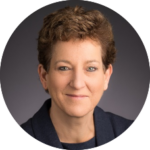 Martha Schlicher
Martha Schlicher
BioGenerator/Impetus Agricultural
Schlicher currently serves an entrepreneur-in-residence at BioGenerator, a part of BioSTL focused on investments in the agri-food tech space, as well as the CEO of Impetus Agricultural Co., an early stage agricultural company developing biological insect control solutions. She most recently served as vice president of the research and development organization of Mallinckrodt where she had responsibility for research and development, clinical pharmacology and development, program and portfolio strategy, and management and regulatory sciences for the development and support of new generic drug products and new development platforms.
Schlicher has more than 30 years of global experience leading the identification, development, commercialization, strategy, marketing and sales of new technologies and in the turnaround of organizations seeking new growth trajectories.
Previously, she served as the vice president of corporate social responsibility, sustainability, and stakeholder engagement at Monsanto. Previous leadership roles at Monsanto included new product crop strategy and development, environmental and regulatory science and policy, sales and marketing, and Office of the President. She has additionally held roles leading business development at Divergence, an ag tech start up sold to Monsanto, and GTL Resources, a renewable energy company sold to CHS.
Schlicher currently serves on the board at Greenlight Biosciences, the St. Louis College of Pharmacy, and the Scientific Advisory Board for Lawrence Livermore National Laboratories. She previously served on the board of GTL, publicly traded on the London AIM; the board of privately held Illinois River Bioenergy; the Secretary of Energy Advisory Board to Secretary Moniz; as a Trustee for the St. Louis Academy of Science; as a member of the United States Department of Energy Biological and Environmental Research Advisory Committee; and as an industry advisor to the International Center for Advanced Renewable Energy Research at Washington University in St. Louis and the Department of Agricultural Economics at University of Missouri – Columbia.
She holds a BS in chemistry from Indiana University, a PhD in organic chemistry from the University of Illinois at Urbana-Champaign, and an MBA from Northwestern University.
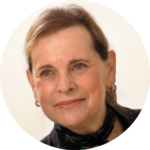 Lucy Shapiro
Lucy Shapiro
Stanford University
Shapiro employs a bacterial model system to probe fundamental aspects of developmental biology. Following her graduate studies in molecular biology and biochemistry, she went on to make major advances in understanding the genetic and molecular decision-making process that directs an asymmetric cell division yielding cells of different cell fates, akin to the process carried out by stem cells in higher organisms.
Shapiro’s research aims to integrate the dynamic spatial organization of the cell into the complete genetic circuitry that defines cell specification and the cell cycle in Caulobacter. Likening the bacteria’s regulatory network to the act of “playing three-dimensional chess,” Shapiro and her colleagues pioneered a systems biology approach to show that the transcriptional circuitry is interwoven with the 3-D deployment of regulatory and morphological proteins. Shapiro’s studies have revealed a striking similarity between the organization of cell cycle behavior in bacteria and more evolutionarily advanced organisms.
Shapiro is a professor in the Department of Developmental Biology and Ludwig Professor of Cancer Research at the Stanford University School of Medicine. She received a PhD in molecular biology from the Albert Einstein College of Medicine. Her many honors include election to the National Academy of Sciences, the Institute of Medicine, the American Academy of Arts and Sciences, and the American Philosophical Society. She is the recipient of the Lasker~Koshland Special Achievement Award in Medical Science, the Waksman Award from the NAS, the Gairdner International Award, the Abbott Lifetime Achievement Award, the Horwitz Prize, and the United States National Medal of Science. NIGMS has supported Shapiro’s research since 1986.
 Keith Yamamoto
Keith Yamamoto
UC San Francisco
As UCSF’s first vice chancellor for Science Policy and Strategy, Yamamoto leads efforts to anticipate the needs of an increasingly dynamic biomedical research endeavor, and to position UCSF optimally, by working within the University as well as influencing and shaping science policy at the state and national levels and beyond.
Throughout his career, Yamamoto has been focused on the practice of science, science education and mentoring, peer review, communication of science, and advocacy for federal support for research. He also directs a research laboratory that for 40 years has made important discoveries on mechanisms that regulate gene expression in health and disease.
Yamamoto has long been a voice for science policy that emphasizes integration at three levels: basic, clinical and social/behavioral/population research; a merging of the concepts and approaches of physical sciences, engineering and computation/math with those of the life sciences; and effective partnerships between academia, industry and government. He believes that such integration will produce transformative scientific advances with potential to address urgent societal challenges.
After earning his PhD from Princeton University, Yamamoto joined the UCSF faculty in 1976. He has served in several significant leadership roles including chair of the Department of Cellular and Molecular Pharmacology, vice dean for research in the School of Medicine, and vice chancellor for research. He chaired the committee that led the planning of the UCSF Mission Bay campus.
Yamamoto has chaired or served on numerous national committees focusing on a wide range of areas including public and scientific policy, public understanding and support of biological research, science education, training the biomedical workforce, research funding, and the process of peer review at the NIH. He chairs the Coalition for the Life Sciences and sits on the National Academy of Medicine Executive Committee, the National Academy of Sciences Division of Earth and Life Studies Advisory Committee and the Executive Committee of Research America. As Chair of the NAS Board on Life Sciences, he created the study committee that produced Toward Precision Medicine: Building a Knowledge Network for Biomedical Research and a New Taxonomy of Disease, the report that enunciated the precision medicine concept, and he has helped lead efforts to implement it at the state and national levels, as well as at UCSF.
He is an elected member of the National Academy of Sciences, National Academy of Medicine, American Academy of Arts and Sciences, and American Academy of Microbiology, and is a fellow of the American Association for the Advancement of Science.
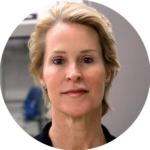 Frances Arnold
Frances Arnold
California Institute of Technology
Arnold is the Linus Pauling Professor of Chemical Engineering, Bioengineering, and Biotechnology at the California Institute of Technology (Caltech). Her research is in green chemistry and alternative energy, including the development of highly active enzymes (cellulolytic and biosynthetic enzymes) and microorganisms to convert renewable biomass to fuels and chemicals. She is co-inventor on numerous patents and co-founded Gevo, Inc. in 2005. She earned a bachelor’s degree in mechanical and aerospace engineering from Princeton University and completed her PhD in chemical engineering at UC Berkeley under the auspices of Harvey Blanch, former Chief Science and Technology Officer of the Joint BioEnergy Institute (JBEI). Following her thesis work, Arnold was a postdoctoral scholar for about 18 months with the late UC Berkeley chemist and Biosciences affiliate Ignacio Tinoco, who researched the structure of ribonucleic acid (RNA). Additionally, she has conducted experiments to solve the structure of engineered proteins at the Advanced Light Source (ALS) and collaborated with researchers at the Molecular Foundry—both DOE Office of Science User Facilities at Berkeley Lab. Arnold pioneered methods of directed evolution to create useful biological systems, including enzymes, metabolic pathways, genetic regulatory circuits, and organisms. She awarded one half of the 2018 Nobel Prize in Chemistry for this work, becoming the fifth woman ever to receive that distinction. Her work has also been recognized by many other awards, including the 2011 Draper Prize and a 2011 National Medal of Technology and Innovation. She was elected to the American Academy of Arts and Sciences in 2011. Arnold has the rare honor of being elected to all three National Academies in the United States: the National Academy of Sciences, the National Academy of Engineering, and the Institute of Medicine. Arnold is a Fellow of the American Association for the Advancement of Science, the American Academy of Arts and Sciences, the American Academy of Microbiology, and the American Institute for Medical and Biological Engineering.
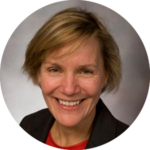 Janet Braam
Janet Braam
Rice University
Braam has a diverse scientific background, being involved in research that spans basic plant cell biology to translation medical research. She received her PhD in molecular virology and biology from the Sloan-Kettering Division of the Cornell Graduate School of Medical Sciences, elucidating the roles of influenza viral polymerase subunits. She then joined Stanford University School of Medicine as an NSF postdoctoral fellow in plant biology. Braam’s research at Stanford led to the discovery that plants turn on genes in response to touch and shed light on the importance of calcium signal transduction in mechanical perturbation responses in plants. In 1990, she joined the faculty at Rice University and rose through the ranks. She has had continual federal grant support and served on diverse grant and advisory panels. Her research contributions include uncovering roles of calcium-binding and cell wall proteins in plant responses to environmental stress, and elucidating aspects of nitric oxide signaling, autophagy regulation, and jasmonate dependent defense. Most recently, her research focus has also included the role of the circadian clock in plant defense, the complex regulation of chlorophyll biogenesis, phytohormone regulation, and autophagy control. Her discoveries in basic plant biology have potential translational application in drug discovery, crop nutrient enhancement, and nanomaterial toxicity analysis in plants.
Michelle V. Buchanan
Oak Ridge National Laboratory
As Deputy for Science and Technology, Buchanan oversees one of the nation’s most extensive portfolios of research and development, spanning physical and materials sciences, energy and engineering sciences, computing and computational sciences, biological and environmental sciences, neutron sciences, and global security, for the U.S. Department of Energy and other sponsors. Before assuming her current position in October 2017, Buchanan was the Associate Laboratory Director for Physical Sciences for more than a decade. She served as director of the ORNL Chemical Sciences Division from October 2000 to November 2004 and as associate director of the ORNL Life Sciences Division from January 1999 to September 2000. She initiated the Center for Structural Molecular Biology at ORNL, serving as its director from 1999 to 2003, and led the Organic and Biological Mass Spectrometry Group in the Chemical and Analytical Sciences Division (now the Chemical Sciences Division) from 1986 to 1999. She joined ORNL in 1978 after earning a BS in chemistry from the University of Kansas in Lawrence, Kansas, and a PhD in analytical chemistry from the University of Wisconsin at Madison.
Buchanan is the author or co-author of more than 150 scientific publications and reports, holds two patents, and was editor of a book on Fourier transform mass spectrometry. She was North American editor of Biological Mass Spectrometry and has served on the editorial boards of Analytical Chemistry, Organic Mass Spectrometry, Journal of Mass Spectrometry, Biological and Environmental Mass Spectrometry, and Fresenius’ Journal of Analytical Chemistry. She received an R&D 100 Award in 1986; ORNL Technical Achievement Awards in 1985, 1989, and 1993; UT-Battelle awards for R&D Leadership in 2000 and 2002; and the Knoxville YWCA Tribute to Women award in science and technology in 2003.
Buchanan is a Fellow of the American Chemical Society (ACS) and currently serves as a Councilor for the Division of Analytical Chemistry (DAC) and as a member of the Divisional Activities Committee of the ACS. She has served as a member of the International Activities Committee for ACS, treasurer for DAC ACS, treasurer for the American Society for Mass Spectrometry, and chair of the East Tennessee Section of the ACS. She also served on numerous advisory boards of universities and for major research centers. Current board memberships include Vanderbilt University, the University of North Carolina, Cornell University Boston University, the University of Wisconsin, and the University of Tennessee. Over the past decade she has worked at the national level helping define basic research needs in a number of key energy-related areas.
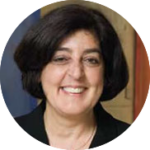 Joanne Chory
Joanne Chory
The Salk Institute
Chory is interested in identifying the mechanisms by which plants respond to changes in their light environment. These studies are relevant to plant adaptation to global climate change. She received an bachelor’s degree in biology with honors from Oberlin College, a PhD in microbiology from the University of Illinois at Urbana- Champaign, and conducted postdoctoral research with Frederick Ausubel at Harvard Medical School. In 1988, she joined the faculty of the Salk Institute, where she has remained. Chory has served on numerous advisory committees and editorial boards. Her honors include: the Award for Initiatives in Research from the National Academy of Sciences; the Charles Albert Schull Award of the American Society of Plant Biologists; the L’Oreal- UNESCO Award for Women in Science; and the Kumho Award in Plant Molecular Biology. In 2003, she was named Scientific American’s Research Leader in Agriculture. She is a member of the U.S. National Academy of Sciences, the German National Academy of Sciences (Leopoldina), the American Academy of Arts and Sciences, and a fellow of the American Association for the Advancement of Science. She is a foreign member of the Royal Society, a foreign associate of the French Academy of Sciences, and is an associate member of EMBO.
 Anne Deslattes Mays
Anne Deslattes Mays
Science and Technology Consulting, LLC
Deslattes Mays is a mathematician, software engineer and computational biologist currently working in the field of applied systems biology. She is currently a principal computational scientist at Jackson Laboratory for Genomic Medicine. Over the past 12 years, she has instituted changes in the companies she has worked with through her consultancy, SB Research LLC, including the creation of new divisions leading to novel imaginative technology.
Previously, she was Director of Applied Systems Biology at Keygene USA and Vice President of Software Systems at Celera Corporation. While working for Craig Venter at Celera, her team, together with the Informatics Research and Sequencing teams, sequenced, assembled, mapped and annotated the Celera Genome in the private effort that together with the Human Genome Project completed the sequencing of the human genome. Deslattes Mays has also worked with data generated from 2nd and 3rd generation sequencing machines, focusing primarily on RNA-Seq data and seeks to discover full-length transcripts and create predictive models capable of determining causality in an organisms’ response to ever changing environmental and evolutionary pressures.
Deslattes Mays received her BSc in mathematics from McGill University, MSc in computer science from the Johns Hopkins University, and a PhD in tumor biology from Georgetown University.
Top
 Edward DeLong
Edward DeLong
Massachusetts Institute of Technology
Delong is a professor of biological engineering and of civil and environmental engineering at the Massachusetts Institute of Technology (MIT), where he works on developing new approaches for microbial community genomics and systems biology. He holds a bachelor’s degree in bacteriology from UC Davis and a PhD in marine biology from UC San Diego. DeLong is a member of the National Academy of Sciences. He serves as a technical advisor for Joule Biotechnologies and Seres Health. He also served as a member of scientific advisory board of LS9.
 David Drubin
David Drubin
UC Berkeley
Drubin has served on the faculty at the University of California, Berkeley for 30 years. His research combines live cell imaging, molecular and cell biology, genetics, and biochemistry. The primary focuses of his research are the cytoskeleton and membrane trafficking events. He studies these processes in budding yeast and mammalian cells. In recent years he has begun to use genome-edited human stem cells for investigations into how the cytoskeleton and membrane trafficking events are altered during differentiation to serve the specific biological demands of the differentiated cells. Through collaboration with Fyodor Urnov and his colleagues at Sangamo Biosciences, Drubin’s lab became the first to use genome editing to express fluorescent fusion proteins at native levels in mammalian cells to avoid perturbing the processes being investigated.
Currently, Drubin is co-Chair of the Department of Molecular and Cell Biology and Editor-in-Chief of the American Society for Cell Biology’s research journal, Molecular Biology of the Cell. Previously, he served as Head of the Division of Cell and Developmental Biology and the Graduate Program in the Department of Molecular and Cell Biology at UC Berkeley. He has served on numerous editorial boards and NIH grant review study sections, and has organized several international research conferences. In 1999 he was Program Chair for the American Society for Cell Biology’s annual national meeting. David is a Fellow of the American Academy of Arts and Science and the American Society for Cell Biology. He earned a bachelor’s degree in biochemistry with high honors at UC Berkeley working on transcription enzymology with Michael Chamberlin, and his PhD in biochemistry and biophysics with Marc Kirschner at the University of California, San Francisco. He performed his postdoctoral studies with David Botstein at MIT.
 Srinivas Iyer
Srinivas Iyer
Los Alamos National Laboratory
Iyer is the Bioscience Division Leader at the Los Alamos National Laboratory (LANL). Prior to this he was a Scientist and later a Group Leader at LANL overseeing multiple areas including the LANL Genomics and Bioinformatics capability. In his independent research, he has explored the application of mass spectrometry to address questions in national security biology and was the leader of the LANL human surrogate organ platform project. As Division Leader, Iyer has line management responsibility for the LANL Bioscience capability and developing strategic directions in biosciences. He also serves as the LANL Program Manager for DOE’s Office of Biological & Environmental Research Biological Systems Science Division (BER-BSSD). Iyer obtained his PhD in biochemistry from the University of Houston, Texas, and performed postdoctoral research at University of New Mexico Medical School in Albuquerque, New Mexico, prior to joining LANL.
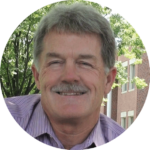 David Koppenaal
David Koppenaal
Pacific Northwest National Laboratory (retired)
Koppenaal was responsible for identifying, planning, developing, and implementing transformational and impactful capabilities to help move the Environmental Molecular Sciences Laboratory’s science programs and themes forward. He also served as the technical lead for EMSL’s high resolution and mass accuracy capability project, a definitive molecular analysis capability that could comprehensively address complex natural sample characterization, including microbial community proteomes, natural organic carbon in the terrestrial and atmospheric environments, and new biofuels and bioproducts.
He has previously served as Division Director, Interim PNNL Chief Research Officer, and EMSL Chief Technology Officer during which time he developed plans that led to $60 million American Recovery and Reinvestment Act refreshment at EMSL in fiscal year 2009–2010, managed a $35 million Laboratory Directed Research and Development (LDRD) program, expanded the environmental and health-related proteomics program, led the next-generation Ion Mobility Spectroscopy-Mass Spectrometer proteomics capability, directed two collaborative R&D projects ranging from $6 million to $10 million, transformed the field of plasma source mass spectrometry by developing unique ion trap, collision/reaction cell and radioactive laser ablation technologies, and an developed international reputation and robust intellectual property portfolio in this field.
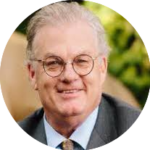 John Pierce
John Pierce
Devenir Consulting, LLC
Pierce consults in the fields of agricultural and industrial biotechnology. From 2010-2015 he was Chief Bioscientist at BP where he developed the strategies, competencies, and innovation pipeline needed for BP to gain maximum benefit from the application of biosciences to their worldwide businesses.
Prior to that time, he had a long career at DuPont commencing in 1982 as a research scientist in Central Research and Development and culminating as Vice President for DuPont Applied BioSciences and Director of Biochemical Sciences & Engineering where he had responsibility for DuPont’s biotechnology research and development efforts in the production of fuels, chemicals, and materials.
Throughout his career, Pierce has focused on the integration of biological approaches with chemistry, engineering, and material sciences to create biotechnological applications in agricultural chemistry, plant genetics, and industrial chemistry. He led the move of industrial biotechnology in the mid-90s, and has long been involved in a variety of public policy activities associated with public acceptance and governmental support of biotechnology.
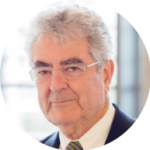 Edward Penhoet
Edward Penhoet
Alta Partners
Penhoet joined Alta in 2000 as a Director and has been full-time at Alta since 2008. He currently serves on the board of directors of ChemoCentryx, Immune Design, Metabolex, Scynexis and Veloxis Pharmaceuticals.
A co-founder of Chiron, Penhoet served as the Company’s President and Chief Executive Officer from its formation in 1981 until April 1998. He served as Vice-Chair of the governing board of the Independent Citizens Oversight Committee for the California Institute of Regenerative Medicine (CIRM) from 2005 to 2010, and served as the President of the Gordon and Betty Moore Foundation from 2004 to 2008.
Penhoet was appointed to President Obama’s Council of Advisors on Science and Technology (PCAST), an advisory group comprised of 20 of the nation’s leading scientists and engineers that directly advises the President and the Executive Office of the President. PCAST makes policy recommendations in the many areas where understanding of science, technology, and innovation is key to strengthening our economy and forming policy that works for the American people.
For 10 years prior to founding Chiron, Penhoet was a faculty member of the Biochemistry Department of the University of California, Berkeley. He is the immediate past Dean of the School of Public Health at the UC Berkeley. He is a member of both the Institute of Medicine of the National Academies and the American Academy of Arts and Sciences. He has co-authored more than 50 scientific articles and papers.
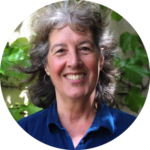 Kate Scow
Kate Scow
UC Davis
Scow is Deputy Director of the Agricultural Sustainability Institute and Director of the Russell Ranch Sustainable Agriculture Facility, and professor in the Department of Land, Air, and Water Resources (LAWR) at UC Davis. For over 20 years, Scow’s research has focused on the role of soil and subsurface microorganisms in carbon and nitrogen cycling and biodegradation of contaminants, and soil management and sustainability of smallholder farms in Uganda. The Russell Ranch Sustainable Agriculture Facility is a unique 300-acre facility near UC Davis dedicated to long-term research on irrigated and dryland agriculture in a Mediterranean climate.
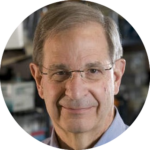 James Tiedje
James Tiedje
Michigan State University
Tiedje is University Distinguished Professor of Microbiology and Molecular Genetics and of Plant Soil and Microbial Sciences at Michigan State, and is Director of the Center for Microbial Ecology, one of the original NSF-funded Science and Technology Centers. His BS degree is from Iowa State University and his MS and PhD degrees are from Cornell University.
Tiedje’s research focuses on microbial ecology, physiology and diversity, especially regarding the nitrogen cycle, anaerobic processes and biodegradation of environmental pollutants. His group has discovered several microbes that live by halorespiration on chlorinated solvents and is now using genomics to better understand microbial diversity and function.
He served as Editor-in-Chief of Applied and Environmental Microbiology. He was President of the American Society for Microbiology (ASM), the International Society of Microbial Ecology, and shared the 1992 Finley Prize from UNESCO for research contributions in microbiology of international significance. He is Fellow of the AAAS, the American Academy of Microbiology, the Soil Science Society of America, and a member of the U.S. National Academy of Sciences.
 Debbie S. Yaver
Debbie S. Yaver
Yaver Biotech Consulting, LLC
Yaver received her BA in bacteriology and PhD in microbiology from University of California, Davis. She worked for two years at SRI International. She then joined Novo Nordisk Biotech as a Scientist in Fungal Expression, and has been with Novozymes for 26 years. She is Managing Director of Novozymes’ site in California as well as director of Production Strain Technology. She is an inventor on 40 issued patents and author on 20 peer reviewed publications.
Yaver teaches a graduate-level seminar on industrial biotechnology at UC Davis. She has been an active member of the Society of Industrial Microbiology and Biotechnology, serving on the Board of Directors and, most recently, as President and Past President. In 2014, she received the first Rosalind Franklin Award for Leadership in Industrial Biotechnology from Biotechnology Industry Organization (BIO). She was recognized by the Sacramento Business Journal with a 2018 Women Who Mean Business award.

